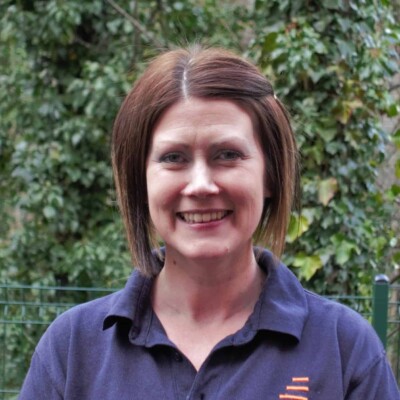Rebekah is our Neurologic Music Therapist (NMT) and Psychological Therapies Lead. She qualified as a HCPC registered music therapist in 2003 gaining her postgraduate diploma in music therapy and soon after completed her master’s degree in music therapy. She promoted and developed music therapy running her own business for 19 years. This involved working in a multitude of settings with adults and children with a variety of multiple disabilities and complex needs around Nottinghamshire, Derbyshire and Yorkshire. Over this time Rebekah integrated music therapy into settings, provided education on the value of the creative therapies and actively sought to share skills so that other professionals could learn from a person-centred therapeutic approach. She gained specific experience supervising creative arts therapy students in their training.
Rebekah has proven experience of using creative music techniques to facilitate safe emotional and psychological self-expression. She has used music to encourage communication and interaction where clients are unable to do this effectively due to injury, illness or disability. She also has experience of facilitating groupwork with specific therapeutic goals.
In 2017 she became an NMT affiliate after completing her international NMT training with The Academy of Neurologic Music Therapy. She maintains an advanced fellowship with the academy. She has developed the NMT role at STEPS since 2017 and actively uses NMT techniques with clients to rehabilitate motor movement, speech/language and cognitive function. She works independently with clients but also integrates NMT in an interdisciplinary context working alongside other therapists towards shared client goals.
Rebekah is trained to use the Music Therapy Assessment Tool for Awareness in Disorders of Consciousness (MATADOC). This is a standardised diagnostic music-based measure that is included in the 2020 National Clinical Guidelines from the Royal College of Physicians, reinforcing its importance in PDOC assessment and care planning. It provides rigorous assessment and evaluation for use with people whose awareness is difficult to assess due to complex clinical presentations that compromise motor, cognitive and communication functioning. The assessment can contribute to interdisciplinary diagnosis of awareness state alongside other assessments and disorders of consciousness measures such as the CRS, SMART and WHIM, as well as a client’s consultant opinion.
Outside of work Rebekah loves spending time with family & friends. She has two stepchildren, a grandchild and an antique dealer husband, so has developed an interest in all things antique, retro and vintage!
